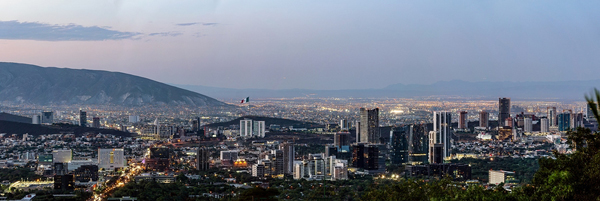
Monterrey, is a popular retirement destination for international retirees seeking a vibrant culture, warm climate, and affordable cost of living. The city offers a blend of modern amenities and traditional Mexican charm, making it an attractive option for those looking to enjoy their golden years in a dynamic and welcoming environment. However, like any foreign country, retiring in Monterrey comes with its own set of challenges, from navigating the healthcare system to learning the local language.
Cost of Living
One of the main attractions of Monterrey for retirees is its affordable cost of living. Housing, groceries, utilities, and healthcare are significantly cheaper than in many Western countries. For example, a one-bedroom apartment in the city center can be rented for as little as $300 per month. Eating out is also inexpensive, with a meal at a mid-range restaurant costing around $10. However, it’s important to note that prices can vary depending on the area and lifestyle choices.
Climate
Monterrey boasts a semi-arid climate, with hot summers and mild winters. The city enjoys plenty of sunshine throughout the year, making it ideal for outdoor activities. However, the summer months can be quite hot, with temperatures often exceeding 30°C (86°F). Therefore, it’s essential for retirees to stay hydrated and protect themselves from the sun.
Healthcare
Monterrey is home to some of the best hospitals in Mexico, offering high-quality medical services at a fraction of the cost compared to the U.S. or Canada. Many doctors and medical staff speak English, making it easier for international retirees to communicate their health concerns. However, it’s recommended to have private health insurance to cover any potential medical expenses.
Public Healthcare System
While Mexico’s public healthcare system is available to all residents, including retirees, many prefer to use private healthcare due to shorter waiting times and better facilities. It’s also worth noting that while public healthcare is free, some services may require a small fee.
Residency Options for Retirees
Obtaining residency in Mexico is relatively straightforward for retirees. The most common option is the Temporary Resident Visa, which is valid for up to four years and can be renewed. To qualify, retirees must prove they have sufficient funds to support themselves.
Parks and Recreational Activities
Monterrey offers a wealth of recreational activities for retirees. The city is surrounded by mountains, providing ample opportunities for hiking and nature walks. There are also numerous parks, such as the Parque Fundidora, which is perfect for leisurely strolls or picnics.
Restaurants
Monterrey’s culinary scene is diverse and vibrant, with a range of restaurants catering to all tastes and budgets. Some popular options include La Catarina, known for its traditional Mexican cuisine, and El Rey del Cabrito, famous for its goat dishes.
Learning the Language
While many locals in Monterrey speak English, learning Spanish can enhance the retirement experience. There are several language schools in the city, such as the Spanish Institute of Puebla, which offers intensive Spanish courses for all levels.
Local Culture
Monterrey’s locals are known for their warm hospitality and friendliness. The city has a strong sense of community, with numerous festivals and events throughout the year that bring people together. However, it’s important for retirees to respect local customs and traditions.
Meeting People and Volunteering
Meeting new people in Monterrey is easy, thanks to the city’s active social scene. There are numerous clubs and organizations where retirees can meet like-minded individuals. Volunteering is also a great way to give back to the community and make new friends. Organizations such as Casa de los Angeles welcome international volunteers.
Housing Options
Retirees in Monterrey typically live in apartments or houses, depending on their preference and budget. The city offers a range of housing options, from modern condos in the city center to traditional homes in quieter neighborhoods. Some popular areas for retirees include San Pedro Garza Garcia and Colonia del Valle.
Transportation
Monterrey has an efficient public transportation system, including buses and a metro. The city is also highly walkable, especially in the downtown area. However, having a car can be convenient for exploring the surrounding areas and for grocery shopping.


